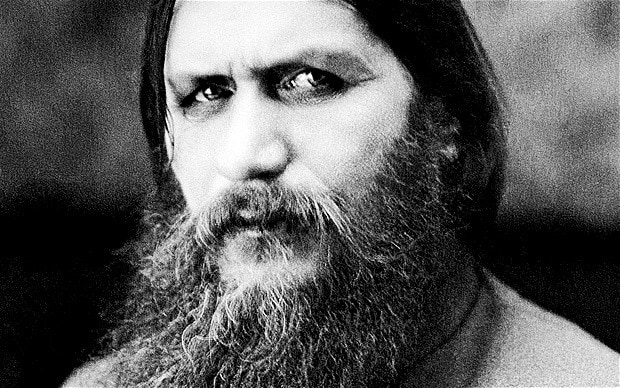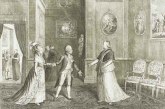
Although Rasputin was a rude and uneducated peasant, prone to drunkenness, his appearance of mysticism attracted many Russian aristocrats.
One of the most controversial figures in Russian history, the mystic and self-proclaimed prophet, Grigory Rasputin was born on January 22, 1869 in the Siberian town of Pokrovsk. He was a member of the flagellant religious sect, in whose nearby sanctuary he studied theology, and discussed biblical texts with monks (though he himself was not a monk). Rasputin claimed that he had a vision of the Virgin Mary and interpreted it as a divine sign that he was destined for some great role in life. He began to claim that he had the power of a spiritual healer and that through prayer he could heal diseases.
In 1911, he arrived in the capital of the Russian Empire – St. Petersburg, where he was heard of by the imperial Romnnov family whose son suffered from hemophilia. The desperate Romans put the fate of their successor in the hands of Rasputin. He arrived at the palace praying over the boy and his condition reportedly improved.
Afterwards he became a favorite of Empress Alexander, and soon gained such influence in the court that he himself was emperor Nicholas II. sought advice on state issues. He was at the height of influence during the First World War, during the reign of Nicholas II. on the battlefield, when the Empress, according to his suggestions, appointed ministers and military commanders. Because of his influence, he gained numerous enemies, especially within the wider imperial family, who accused him of charlatanism and debauchery.
Although Rasputin was a rude and uneducated peasant, prone to drunkenness, his appearance of mysticism attracted many Russian aristocrats with whom he maintained legendary orgies. In spite of everything, Empress Alexander saw in him a deputy of God who cares for the future emperor, and through her husband, Rsputin, secured the status only enjoyed by members of the immediate imperial family. In addition, rumors spread that he was in a relationship with the Empress, and the Russian press demonized him for over-influencing the Empress and the Emperor, which caused the whole country to suffer, and they considered the self-proclaimed prophet guilty of defeat in the war. Of course, this made his opponents even more angry who used the chaos of World War I to solve it. Rasputina tried twice to kill, but to no avail, which extended the story that he was immortal.
Finally, a group of officers, led by the emperor’s close cousin Prince Felix Jusupov, made the decision that Rasputin must be killed at all costs in a well-organized assassination. On the night of December 30, 1916, they lured him to a party where they tried to poison him with wine and cakes, but the poison did not work. Then they started beating him, and Yusupov shot him from close range. When it seemed that the devil was finally dead, a bloody Rasputin stood up hit Yusupov and began to run. Then the other conspirators fired several more shots at him, after which he fell again. Fearing a revival, they tied him up and threw him into the river Neva. When Rasputin’s body was found, his lungs were filled with water. This showed that he was not dead and resisted until he drowned in the cold river.
In the main, this Siberian peasant played an important role in the last days of the Romanov dynasty and their downfall leading up to the communist revolution of 1917, and reportedly warned Nicholas II through the Empress. that he had a vision that if Russia entered the First World War it would bring ruin to the Russian Empire. Rasputin has been a fascination of historians and laity for almost a century




